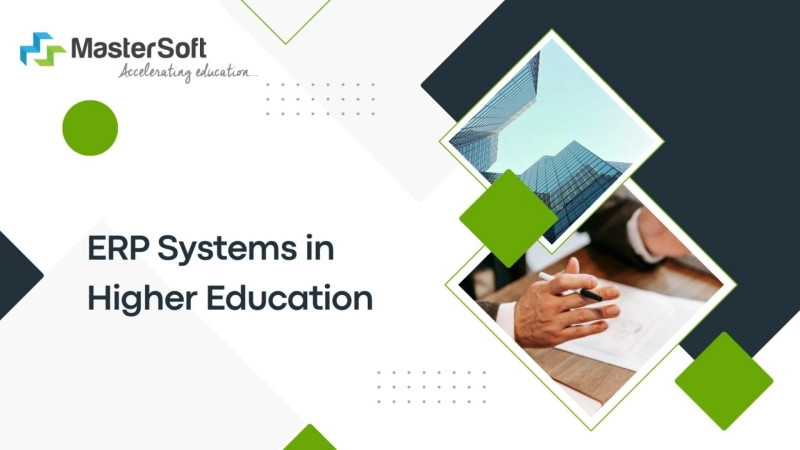Introduction: In the fast-paced world of higher education, institutions are under increasing pressure to manage complex administrative tasks efficiently while delivering exceptional academic experiences. One solution that has revolutionized administrative practices is Enterprise Resource Planning (ERP) systems. These systems have evolved to become indispensable tools for colleges and universities, enabling them to streamline operations, optimize resources, and enhance decision-making. In this article, we delve into the evolution of ERP systems in higher education and their transformative impact on institutional management.
Understanding ERP Systems in Higher Education:
ERP systems tailored for higher education institutions are comprehensive software solutions designed to integrate and automate various administrative functions across departments and campuses. Initially, these systems focused on core functions such as finance and human resources. However, modern ERP systems have expanded to encompass a wide range of functionalities, including student information management, admissions, academic planning, and more. By providing a unified platform for managing critical operations, ERP systems enable institutions to achieve greater efficiency, accuracy, and transparency in their administrative processes.
Key Features of ERP Systems for Higher Education:
Centralized Data Management: ERP systems consolidate data from disparate sources into a centralized database, ensuring data consistency and integrity across the institution. This centralized approach facilitates seamless access to information and enables better decision-making.
Streamlined Administrative Processes: ERP systems automate routine administrative tasks such as student enrollment, course scheduling, payroll processing, and procurement. By reducing manual effort and streamlining workflows, institutions can optimize resource allocation and improve operational efficiency.
Enhanced Student Experience: ERP systems provide self-service portals and mobile applications that empower students to manage their academic journey more effectively. From course registration to accessing academic records, students can conveniently access essential services and information, enhancing their overall experience.
Integrated Financial Management: ERP systems offer robust modules for budgeting, accounting, grants management, and financial reporting. These modules provide institutions with comprehensive tools for financial management, ensuring compliance with regulatory requirements and optimizing financial resources.
Academic Planning and Resource Allocation: ERP systems support academic planning and resource allocation by providing tools for curriculum management, faculty scheduling, and facility utilization. This enables institutions to optimize course offerings, allocate faculty resources effectively, and enhance academic programs.
Reporting and Analytics: ERP systems provide advanced reporting and analytics capabilities, allowing institutions to generate custom reports, analyze trends, and monitor key performance indicators. This data-driven approach enables institutions to make informed decisions and drive continuous improvement.
Scalability and Flexibility: ERP systems are designed to scale with the evolving needs of higher education institutions, accommodating growth and changes in technology. Modular architecture allows institutions to customize the system to meet their unique requirements and integrate with existing systems seamlessly.
Benefits of ERP Systems for Higher Education:
Improved Efficiency: ERP systems streamline administrative processes, reducing manual effort and increasing productivity across the institution.
Enhanced Data Accuracy: Centralized data management ensures data consistency and accuracy, reducing errors and improving data quality.
Better Decision-Making: ERP systems provide real-time access to data and analytics, empowering institutions to make data-driven decisions and respond quickly to challenges and opportunities.
Collaboration and Communication: ERP systems facilitate collaboration and communication among departments, promoting transparency and alignment of goals.
Cost Savings: By automating processes and improving efficiency, ERP systems help institutions reduce operational costs and allocate resources more effectively.
Regulatory Compliance: ERP systems assist institutions in maintaining compliance with regulatory requirements and reporting standards, reducing the risk of non-compliance and associated penalties.
Conclusion:
ERP systems have transformed the way higher education institutions manage their administrative processes, enabling them to achieve greater efficiency, transparency, and effectiveness. By providing centralized data management, streamlined workflows, and actionable insights, ERP systems empower institutions to adapt to the evolving needs of the education sector and drive continuous improvement. As higher education continues to evolve, the adoption of ERP systems will remain essential for institutions looking to thrive in a competitive landscape and deliver quality education to students.


